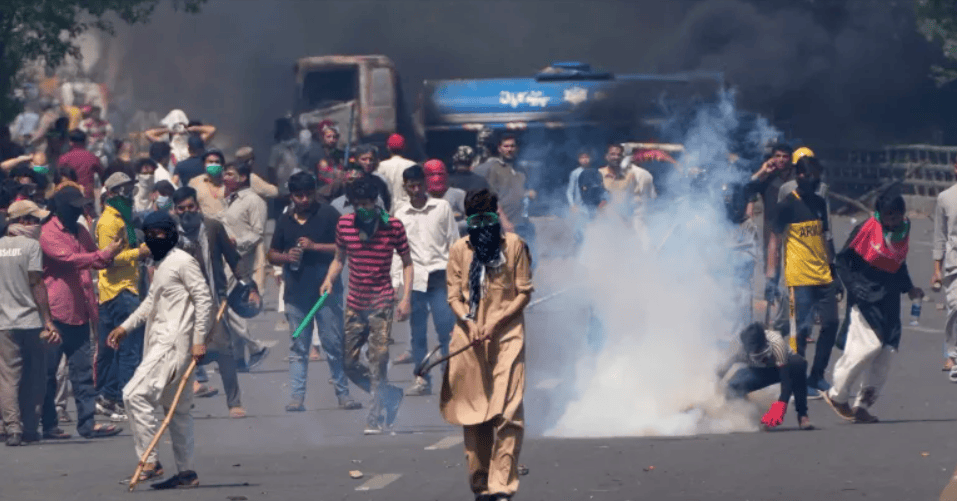Pakistan Faces International Backlash
“Pakistan Faces International Backlash” over the recent sentencing of 25 civilians by a military court for their involvement in the nationwide May 9 riots last year. The United States accused the proceedings of lacking “judicial independence, transparency, and due process guarantees.” State Department spokesperson Matthew Miller expressed concern on X, stating that the United States calls upon Pakistani authorities to respect the right to a fair trial and due process.
EU Raises Concerns
“Pakistan Faces International Backlash” as the European Union (EU) and the United Kingdom also questioned the use of military courts to try civilians. The EU was the first to react to the December 21 military court verdicts, issuing a statement expressing “concern” over the sentencing. They added that the verdicts appear “inconsistent with the obligations Pakistan has undertaken under the International Covenant on Civil and Political Rights” (ICCPR). Furthermore, the EU highlighted Pakistan’s beneficiary status under the Generalised Scheme of Preferences Plus (GSP+), which allows Pakistani exports to enter European markets duty-free.
US and UK Criticize Military Trials
The United Kingdom echoed similar concerns, emphasizing that the trial of civilians in military courts “lacks transparency.” These statements from the US, UK, and EU follow the May 9 arrest of former Prime Minister Imran Khan, which led to nationwide riots. Supporters of Khan’s Pakistan Tehreek-e-Insaf (PTI) party targeted government buildings and military installations, including the army headquarters in Rawalpindi and a senior military official’s residence in Lahore. Khan was released within 48 hours following a Supreme Court ruling, but thousands of PTI workers were arrested for the violence. Of these, 105 were referred to military courts.
Military Trials and Sentences
On December 21, the military announced that 25 people had been convicted, with at least 14 receiving 10-year prison sentences. The military defended the proceedings, stating they followed due process and ensured the legal rights of the accused. However, the United Nations Human Rights Committee urged the Pakistani government to review legislation concerning military courts and revoke their jurisdiction over civilians.
Pakistan’s Response to Criticism
“Pakistan Faces International Backlash” and responds to the criticism. Pakistan’s Ministry of Foreign Affairs responded to the EU’s comments, indicating that Pakistan’s constitution and judicial system would determine its domestic political and legal decisions. The Foreign Office issued a statement insisting that Pakistan’s legal system “guarantees the promotion and protection of human rights and fundamental freedoms” and was consistent with “international human rights law,” including provisions of the ICCPR.
GSP+ Status and Economic Implications
“Pakistan Faces International Backlash” as the EU warns that Pakistan could be violating its preferential trade deal under GSP+. GSP+ incentivizes partner nations to improve governance standards by offering preferential trade access. The conventions focus on human rights, labour rights, the environment, and good governance. Failure to adhere to these commitments could jeopardize Pakistan’s GSP+ status, potentially reducing Pakistani exports by more than 20 per cent. In 2023, Pakistan was the largest GSP+ beneficiary, with over 78 per cent of its exports to Europe entering duty-free.
Political and Economic Repercussions
The PTI views the military trials as part of a broader crackdown against the party after Khan’s ousting via a parliamentary no-confidence vote in April 2022. Furthermore, former Prime Minister Shahid Khaqan Abbasi and former Finance Minister Miftah Ismail also criticized the decision to try civilians in military courts. In addition, they argued that the trials provided international bodies with grounds for criticism and could harm Pakistan’s economic interests. Moreover, Haroon Sharif, a former minister of state, warned that failing to uphold non-economic commitments could lead to economic challenges.
Conclusion: Navigating International Relations
“Pakistan Faces International Backlash” from the US, UK, and EU, emphasizing the need for transparency and adherence to international human rights standards. As Pakistan navigates these legal challenges, **therefore**, the international community will closely monitor its commitment to ensuring fair trials and maintaining the integrity of its judicial processes. Moreover, the political and economic implications of these actions highlight the importance of upholding international agreements and maintaining positive relations with global partners.



